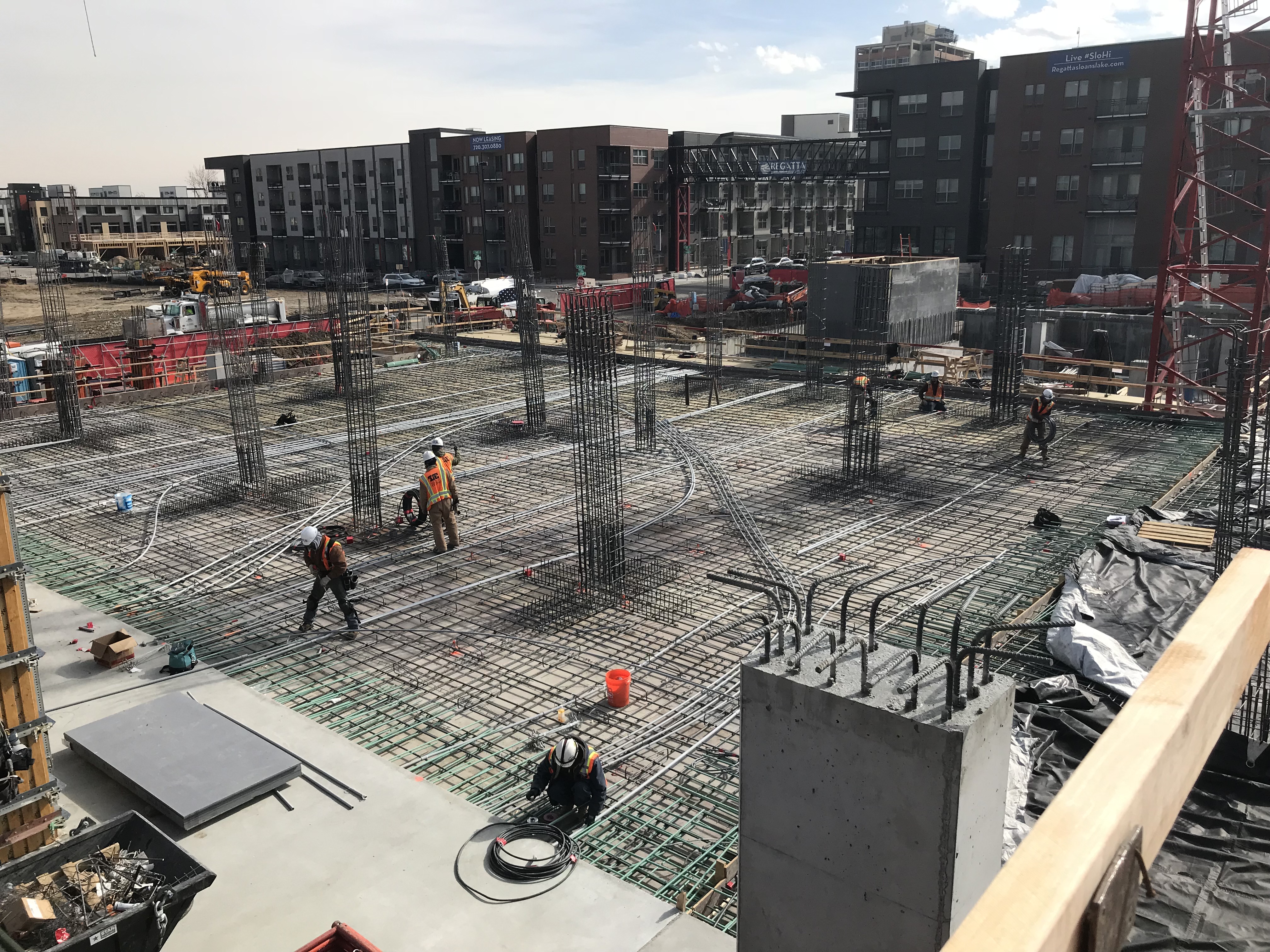
By Chris Pederson, vice president of the Concrete Division of GH Phipps Construction Companies.
Concrete may appear to be one of the more routine materials used in a construction project, but if an owner/developer/builder doesn’t give it the time, attention and respect it deserves, this “basic” material can wreak havoc on the project with cost overruns, scheduling problems and quality issues. As much as 100 percent of a building’s structure can be made of concrete and can account for 20 percent (or more) of a project’s overall cost. Unfortunately, some owners, developers and builders don’t adequately plan—or may decide to take design shortcuts or look for the lowest prices when it comes to their concrete needs—costing themselves a lot of frustration, time and money in the long run.
Overcoming the budget, schedule and quality concerns that concrete structures can create for a project should begin at the early concept stages of the project, beginning with the preconstruction efforts, and continuing through the planning and execution phases of the project. When procuring structural concrete, here are some key concepts to consider:
Budgeting and Resource Allocation

Like any building material, the cost of concrete material and reinforcing steel can fluctuate depending on market conditions from one month to the next. In fact, concrete and reinforcing materials have been known to escalate in price by as much as 10 percent to 15 percent during the lifecycle of a construction project. In order to minimize the risks to the project related to material price escalations, it’s beneficial to partner with a concrete contractor early in the design phase, one who understands the challenges associated with the material cost escalations and can minimize the budgetary risks to the project.
By partnering early with a concrete contractor, owners, developers and builders can take advantage of their expertise when it comes to structural design and construct ability reviews at various stages of design progression. This typically sets the stage for an economical, constructible project at the completion of the design phase.
An experienced concrete contractor applies their knowledge and provides a solid budget in regards to concrete structural systems costs. This provides the owner, developer and builders with certainty that their budgets will hold through the design phases.
In today’s tight labor markets, labor costs are at a premium. It is advantageous to lock in labor resources early to ensure that when the project is fully funded and shovel ready, the labor resources are ready to roll. By locking in a concrete contractor early, the labor is allocated to the project, thereby committed to deliver schedule and quality.
Quality
High quality concrete work takes on greater importance in delivering a better building experience. A project specific quality control program should be created for every project. This program should include items such as management responsibilities, design reviews and controls, quality standards, process controls, inspections and tests, nonconformance plans, and quality systems audits. These programs should include several quality inspection check lists and pour cards for each task of the structure during construction. Building the structure correctly the first time, will help keep a project on schedule and budget.
Consistency and Dependability
Working with a concrete contractor who understands the nuances of all of the different aspects of concrete structural systems, from the preconstruction through the execution phases of the project, eliminates a lot of frustration and ensures a plan is in place to manage material price escalation, budget and cost certainty, and labor resources availability when the project is ready to be built. Doing so will also facilitate design constructability, economical goals and set a solid foundation to the project setting the pace for the other trades to follow.
Considering how much of a building is made-up of structural concrete (both in terms of its structure and its overall cost) it’s critical for owners/developers/builders to make sure that they’re working with a structural solution and concrete contractor they can count on. It’s one part of a project that can’t be easily corrected if shortcuts are taken or mistakes are made.
Chris Pedersen is vice president of the Concrete Division of GH Phipps Construction Companies. The division has specialized as a concrete contractor since (1993) and has successfully completed more than $250,000,000 worth of concrete construction projects.
Photos courtesy of GH Phipps









